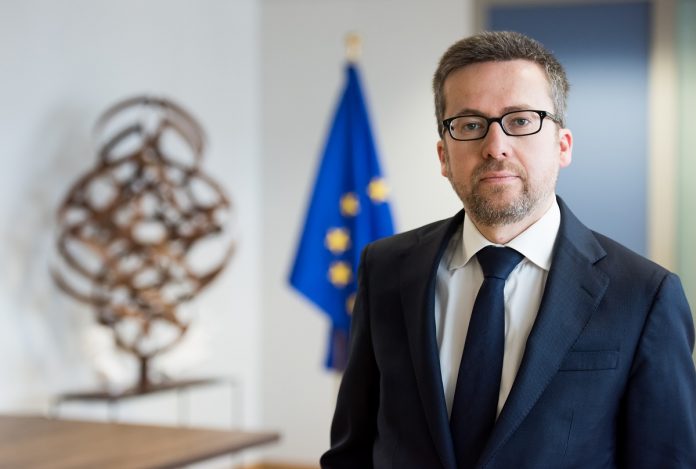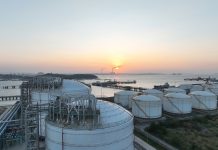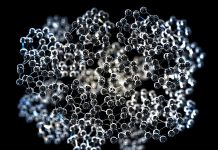In a speech, Commissioner Moedas shares how the European Research Council has pushed the boundaries of discovery and helped to develop European science
In the past 2 years at the Commission, I have had the privilege of meeting so many of the grantees and to listen to them. And the fact is that somehow they’re all different. They are the best in the world but I think that what really amazed me and what differentiates them is not only that they are best. What differentiates them is their being contagious about their passions.
They are great storytellers. They have a way of communicating their project that you do not find anywhere else.
This is an amazing strength for Europe. This is an amazing strength for our collective future.
The European Research Council
ERC storytellers are able to make you passionate about things that you don’t fully understand. That’s mind-blowing. Ben Feringa and Jean Pierre Sauvage tell a story about how they created a four-wheel nano-car and how one day these nano-cars would be able to travel into your body and repair cells. You immediately become passionate about it without understanding it. How powerful is that?
This way of storytelling is contagious. This is a unique trait.
It’s that unfailing belief that has made the ERC a major European success. And not just for the European project. In fact, we can even see the ERC reach beyond planet earth!
Michael Gillon, who some of you may have heard of recently, is a perfect example of the success of the ERC.
He is the lead researcher behind the SPECULOOS project and the recent discovery of the 7 new planets.
Michael, a Belgian based out of the University of Liege (those of you who have lived in Belgium will appreciate the name SPECULOOS!) is an ERC grantee. I recently had the chance to talk to him. He has an amazing story.
And what he said towards the end of our conversation struck me. He said: The European Research Council believed in our intuition. I think Europe is one of the very few places where you still believe in scientific intuition and the ERC is the real proof of that.
That is what makes the ERC exceptional: its belief in the potential of science.
Its belief in intuition. Its belief that science is at the intersection of different fields.
The problem with this story is that for several days nobody knew it was a European Scientist with European money behind it. The news was: “NASA discovered 7 Earth-like Planets”. So we have to be more vocal about our stories. We hesitate too much to tell our stories to the broader public.
We are shy about our science.
I am proud that the European Commission took the bold step in 2005 to propose the establishment of the European Research Council as part of the 7th Framework Programme.
At the time, there was strong opposition to this proposal – including from several Member States.After 2 years of tough negotiations – and the vocal support of the scientific community – the ERC was finally agreed upon by the European Parliament and the Member States.
The ERC was a success from day one and has gone from strength to strength ever since. For Horizon 2020, the Commission proposed a doubling of the budget for the ERC. This was – for the most part – achieved. Following the mid-term review of the EU budget, the Commission proposed an increase in funding for Horizon 2020, including for the ERC.
I am happy to announce today that the Commission plans to increase the budget for the ERC by €50m for the remaining years of Horizon 2020.
Pushing research
In 10 short years the ERC has become a powerhouse of science. It is recognised as the best in the world in the way it supports fundamental research.
But I believe its importance goes beyond science. It shows how the European Union itself can innovate. In 10 years the ERC has consistently demonstrated that it is responsive and understanding of what scientists need. Some of the simplifications that the ERC introduced have now been mainstreamed across all parts of Horizon 2020. Such as the use of lump sums for overhead costs.
As boring as it sounds to give statistics, the numbers for the first 10 years are so impressive that I can’t pass them up:
ERC funded projects are responsible for 6 Nobel Prizes, 5 Wolf Prizes and 4 Field Medals.
ERC funded projects have resulted in 100,000 articles being published in scientific journals, including over 5,500 in the 1% most cited scientific journals.
That means that for the first time, Europe has surpassed the US in the number of top 1% most cited scientific publications.
So let’s be vocal about it. To be European is to be proud of science.
The strong belief that the Commission and the ERC have in basic science has become contagious. Its model has been recognised as an example of best practice for national funding.
Since the creation of the ERC:
Eight Member States have set up their own national research councils inspired by the ERC model. Eleven Member States have launched funding mechanisms based on ERC funding.
In 10 years, the ERC has not only become a beacon of excellence in science. But it has kick-started a domino effect in this belief throughout Europe, and the world. We’re not just here today to talk about the past successes of the ERC. We have another task. We need to talk about where we see it going in the future.
You may know that European Commission President Juncker recently released the White Paper on the future of Europe. And in it, he took considerable care to point out the challenges we need to overcome. Science is recognised as a central element of the future of the EU for 2 reasons:
- Because it is the best tool we have to reconnect with people. Science is about creating bridges, about collaboration about understanding others. So we need you in Europe.
- Because it is only with science that we can overcome our biggest challenges such as climate change, our ageing population and even security threats.
As a paradigm of excellence, the ERC should also act as a model for the Future of Europe.
While we are number 1 in science, this is not the case for innovation. So this is why I am working so hard to create a European Innovation Council. To create more impact from European innovation support.
If we are successful with an EIC, I believe this will increase even further the success of the ERC. The ERC Proof of Concept scheme has shown that there are many fantastic ideas for innovation that come from ERC projects. Future EIC should accelerate the application of these ideas. And scale up the successful applications so they have a real impact on people’s lives and wellbeing.
So the EIC will be a complement to the ERC, not a competitor.
In the next 10 years and beyond we will try to bridge the ERC to a future EIC. If we are to overcome the challenges that President Juncker spoke of, we need to reinforce the link between research and innovation. But with each keeping its own distinct identity.
This is very much in keeping with the 3 values I have set out for the new Framework Programme: Excellence; Openness: and Impact.
The ERC is already a beacon of excellence. It is at the forefront of open science and open to the world. And it is having a tremendous impact in so many different ways. I believe the ERC must be a key pillar in an even more ambitious Framework Programme that follows Horizon 2020.
This is an edited version of a speech from Commissioner Moedas.
Carlos Moedas
Commissioner for Research, Science and Innovation
European Commission
https://ec.europa.eu/commission/commissioners/2014-2019/moedas_en











